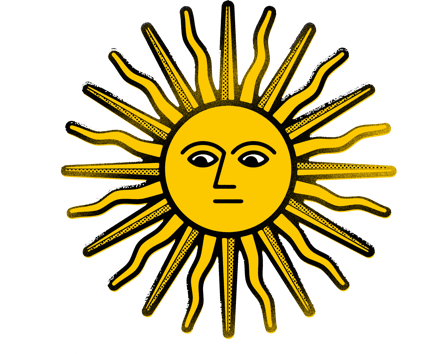Read this carefully because 9 out of 10 people are not clear about the difference between entrepreneurship and startup

This channel about innovative entrepreneurship and startups was born in April 2022 and its audience has not stopped growing. In three months we have tripled both the number of page views and users, and international readers - we have created language versions in English and French - are already 30% of the total.
We have already interviewed more than a hundred public officials in institutions or specialists in entrepreneurship and we could say without fear of giving very wrong data that 9 out of 10 interviewees are not clear about the difference between entrepreneurship and a startup. So let's explain it.
Self-employment or traditional entrepreneurship aspires to a market that is only local, with little or no digitization, with non-scalable (or difficult to scale) business models, which therefore do not attract private investors, which requires the entrepreneur to finance himself/herself. to or, where appropriate, to incur bank debt (which becomes a liability), which traditionally or does not generate employment (beyond the entrepreneur) or which is of low quality, which is built in a context of loneliness or with little support (Solo founder), with little or no market research and validation of the entrepreneurial idea.
For all of the above, statistically it has been shown that it has high failure rates (it is estimated that 5 out of 10 ventures fail before 3 years). It is a system of entrepreneurship that generates personal and social frustration, as an autonomous community and as a country.
On the contrary, and in line with the “Spain Entrepreneurial Nation” vision, innovative entrepreneurship or startups is the type of entrepreneurship that aspires to a global market, based on the Internet and/or medium or high digitization, with scalable business models. , which, due to the foregoing, does attract investors (private and public), which obtains or aspires to obtain external financing that becomes an asset (not debt or liability), which tends to generate higher quality employment, which is built on a community or ecosystem.
In this approach, the generation of teams with complementary knowledge and skills is promoted, with already proven methodologies that promote learning to quickly correct errors (with the lowest costs and in the shortest possible time). Error rates on initial business ideas are also high, but the methodology of pivoting or changing focus is applied until an adequate fit between product and market is achieved. If the project is abandoned, the personal damages (frustration, lost time and money) are less than in the traditional venture.
According to INE calculations for 2020, 99.23% of Spanish companies do not even meet the definition of median (between 50 and 249 employees); and 82.81% have less than three people on staff, a decisive factor when businesses close: they are undertaken alone, not in an ecosystem.
An important regulatory change: the startup law
On December 27, 2021, the Draft Law for the Promotion of the Ecosystem of Emerging Companies was published in the Official Gazette of the General Courts, which was presented in Congress on December 13, 2021 to start its parliamentary process. , a law that is expected to come into force in the last quarter of 2022.
As described in the explanatory statement of the Bill, more widely popularized as the Startups Law, “in recent years, innovation-based entrepreneurship has been gaining ground, driven by the success of digital companies that were born from small innovative projects. , from access to an immense wealth of knowledge and data on the Internet on which new products and services can be developed, and from advances in scientific and technical knowledge that make it possible to transform research results into viable companies”.
“This new knowledge-based economy is an important lever for growth and prosperity, as it is based on high value-added activities, has high growth potential thanks to the scale provided by digital media, promotes research, development and innovation and develop new products and services that facilitate or improve social, economic, environmental or cultural processes”.
In an increasingly globalized and interdependent economy and with a growing weight of technology-based companies and remote work with digital media, attracting talent and investment through the creation of ecosystems favorable to the establishment of entrepreneurs becomes increasingly important. or remote workers, known as “digital nomads”, to the creation and growth (scaleup) of innovative, knowledge-based, digitally-based and fast-growing companies, known as emerging companies or startups, and to the attraction of investors specialized in the creation and growth of these companies, also known as business angels.
In order to strengthen this incipient ecosystem and promote this type of company as one of the engines of recovery and modernization of the Spanish economy, the Recovery, Transformation and Resilience Plan includes the Spain Entrepreneurial Nation Strategy, with a set of specific measures in the fiscal, commercial, civil and labor fields aligned with the programs of the most advanced countries and with European standards in the matter, in particular the recently signed EU startup nation standard








0